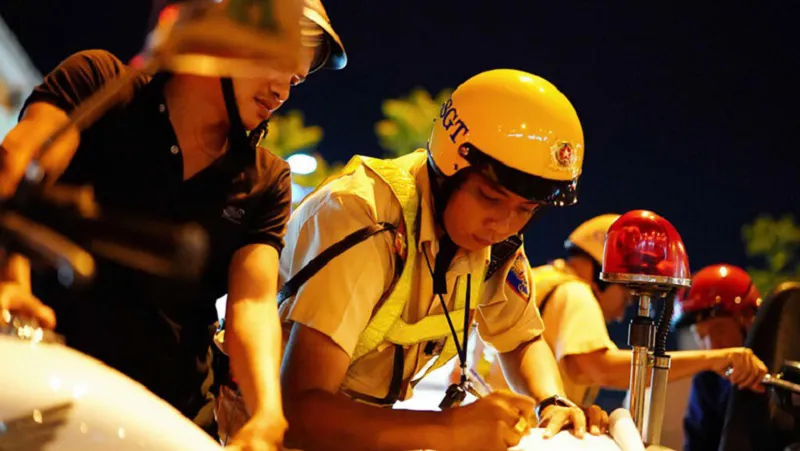Take a look at Vietnam’s new tough drink-driving law
The new law stipulates that drivers must be “completely sober while operating vehicles”, on pain of much higher fines than before, as well as running the risk of having their driving licenses revoked for up to two years.
Vietnam’s law on drink-driving that took effect on January 1, 2020 has appeared to be tough, showing the country’s efforts to crack down on drunk-driving which largely caused tragic accidents over the last years.
| The law is said to be tough |
The Law on Preventing Alcohol’s Harmful Effects bans all motorcyclists and automobile drivers from having any level of breath or blood alcohol concentration.
Motorbike drivers can face fines as high as VND8 million (US$345), double the previous maximum, and a possible suspension of a driver’s license for two years, up from five months previously.
Those driving automobiles or trucks under the influence may be hit with a penalty of as much as VND40 million (US$1,739) and up to two-year license suspension.
The new law will also ban advertising alcoholic beverages on television and other media platforms between 6:00 pm and 9:00 pm, with the exception of programs relayed from foreign broadcasters.
Advertising alcoholic drinks to persons under 18 years of age or employing underage actors in alcohol adverts are strictly banned under the new law.
The law also requires alcohol advertising to include health warnings and stores to post signs announcing the ban on alcohol sales to those younger than 18.
Consumption of alcoholic beverages in some public areas or at the workplace and schools during office hours is also banned.
Authorities appear to be taking implementation seriously. In the first half of January, the Ministry of Public Security’s traffic department issued fines totaling VND21 billion (US$91,300) in 6,279 cases, Vietnam News Agency reported.
Luong Xuan Dung, general secretary of the Vietnam Beer Alcohol Beverage Association, said the association has supported tougher laws to encourage responsible drinking but the new fines are too steep.
“We understand this regulation is necessary to make people more responsible when they drink,” Dung added. “But it is still very controversial,” Bloomberg reported.
If the law is enforced, and police aren’t persuaded to look the other way, “it will improve Vietnam’s image, not only in the eyes of foreigners but in the eyes of its citizens,” Bloomberg quoted Vu Tu Thanh, senior Vietnam representative of the US-ASEAN Business Council as saying.
The law came into effect just days before the Lunar New Year as the government’s part of efforts to curb traffic accidents relating to drink-driving.
The enforcement of the law has hurt the operations of restaurants, bars, and beer halls. To attract customers, they have come up with a creative way to get patrons home safely.
Nguyen Thi Hanh, a manager at a draught beer bar in downtown Hanoi, told Agence France-Presse: “The new regulation is horrible. The number of customers has dropped significantly, by around 80%.”










